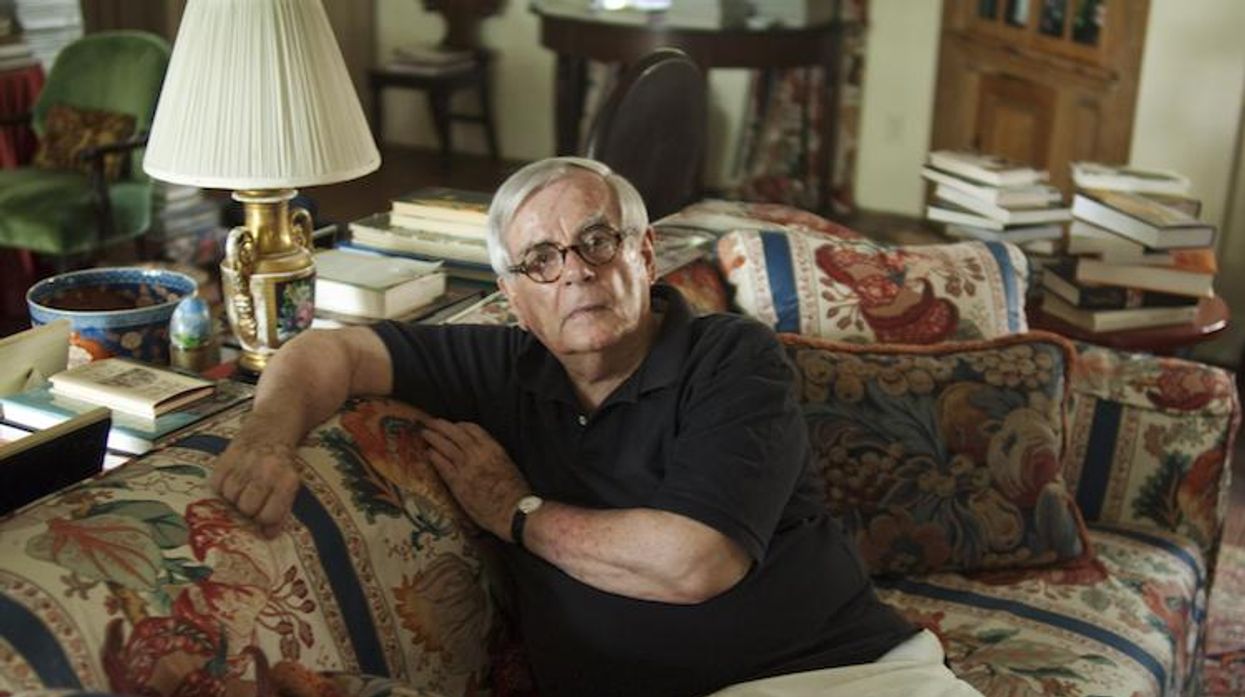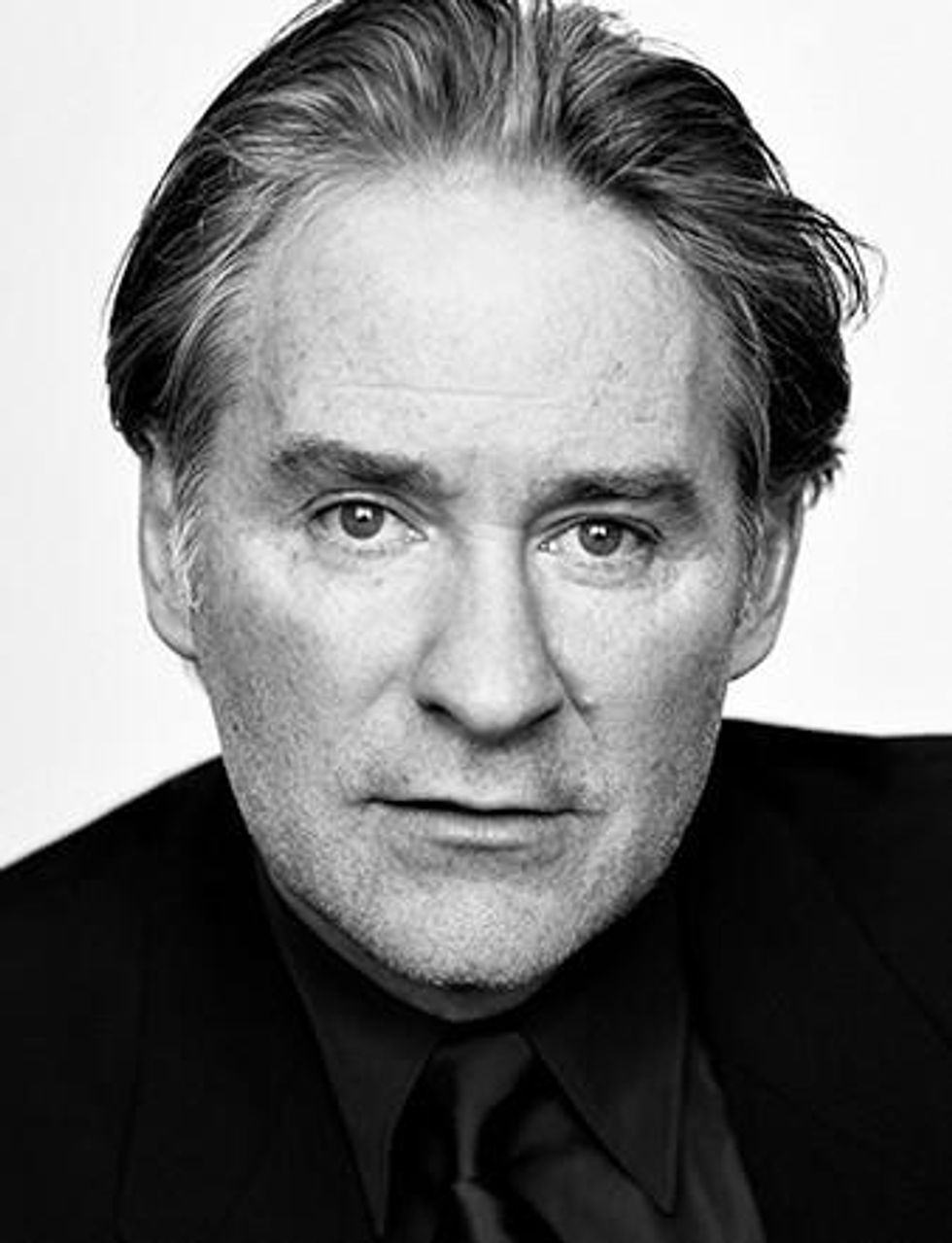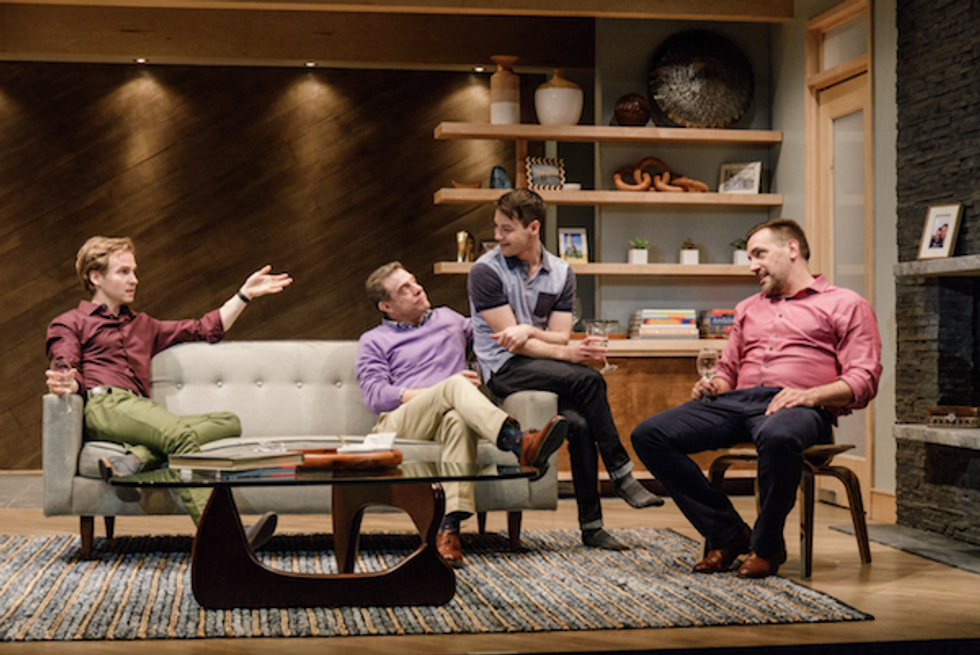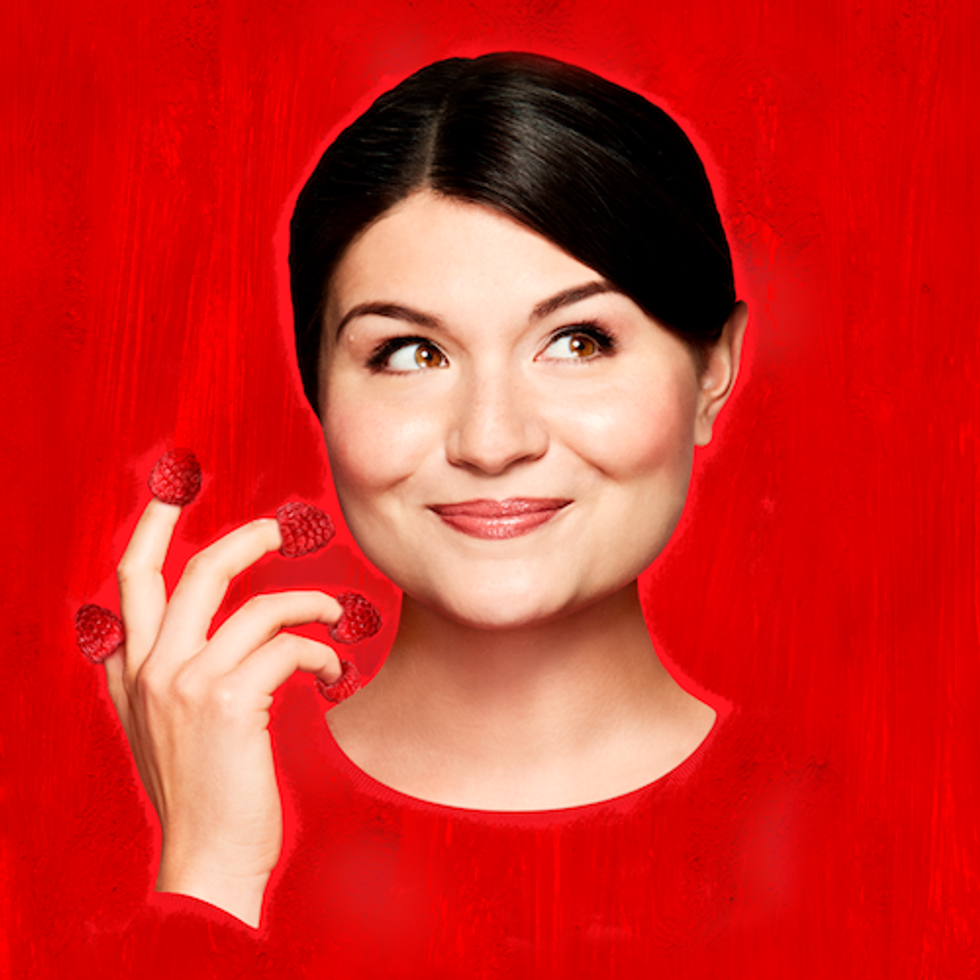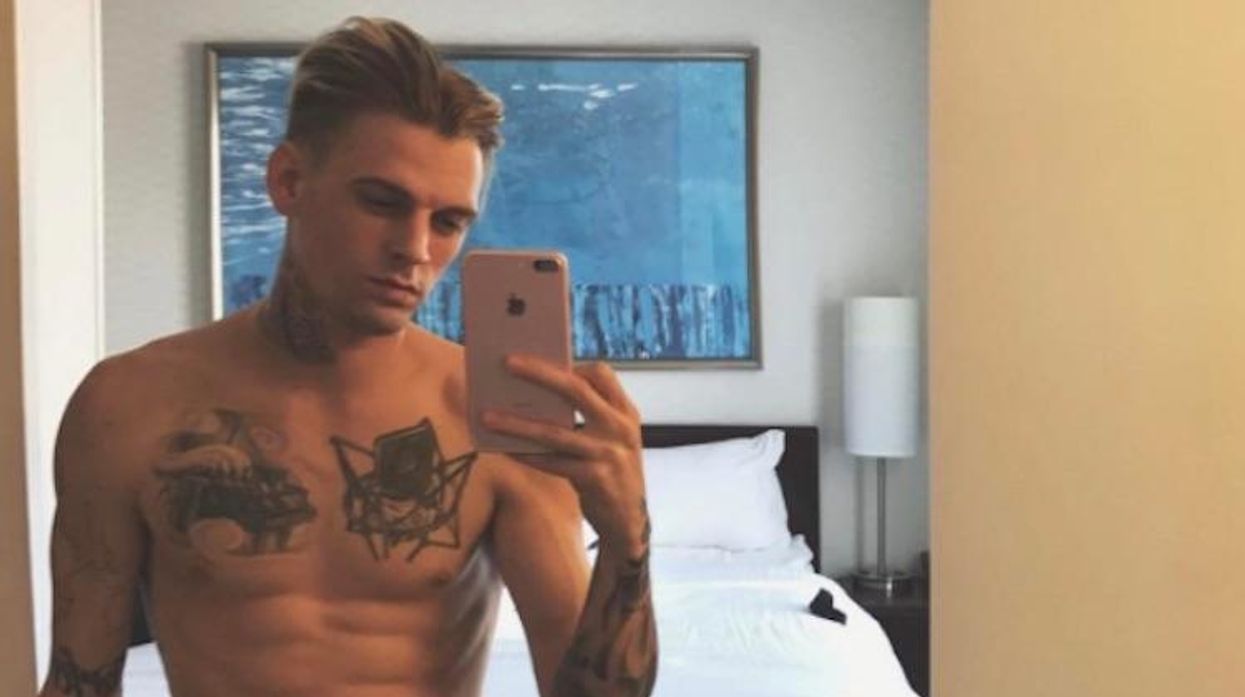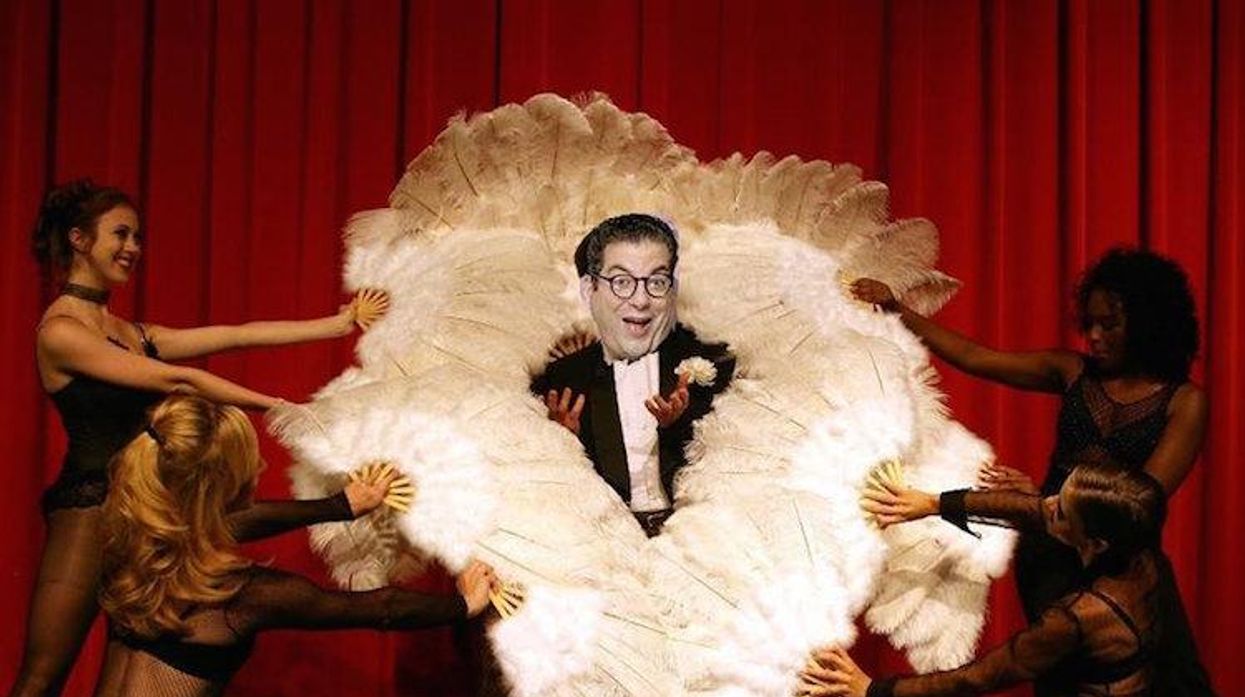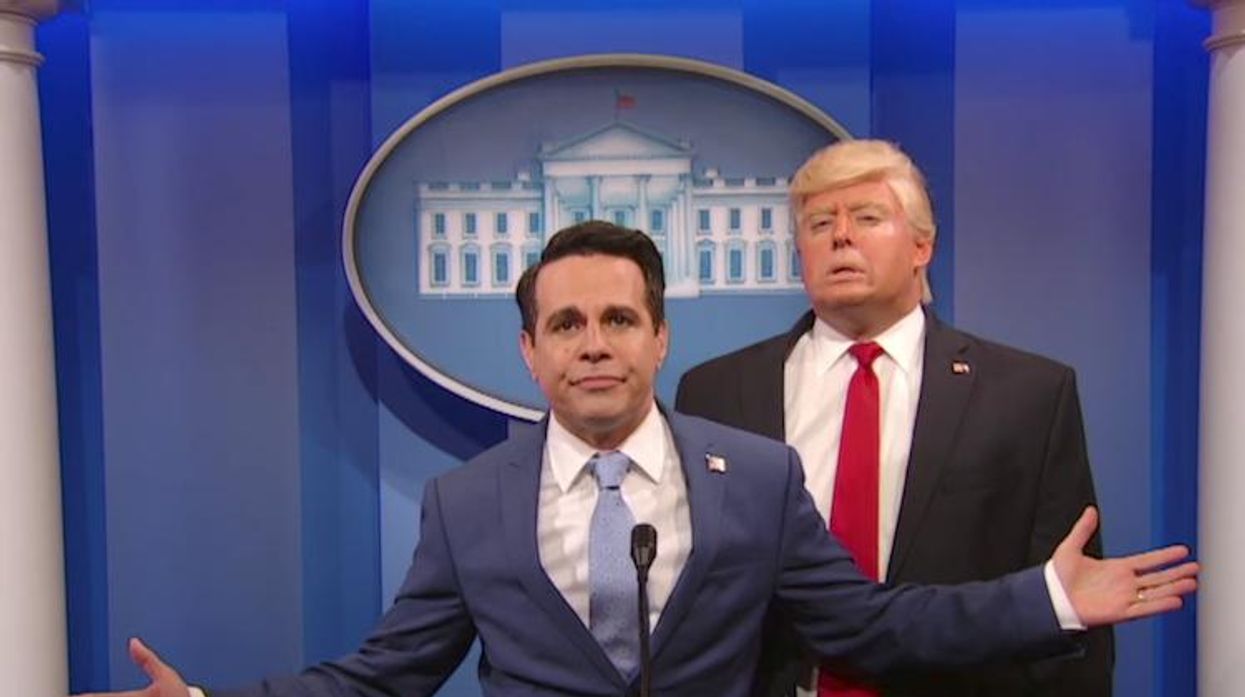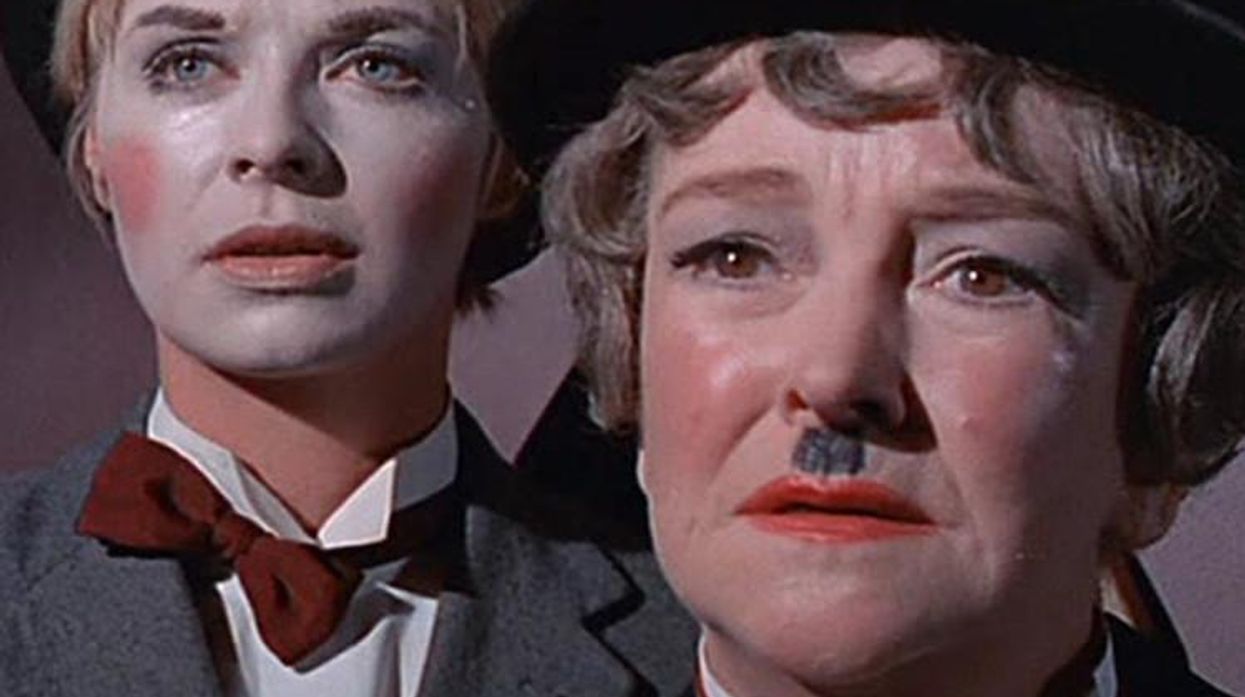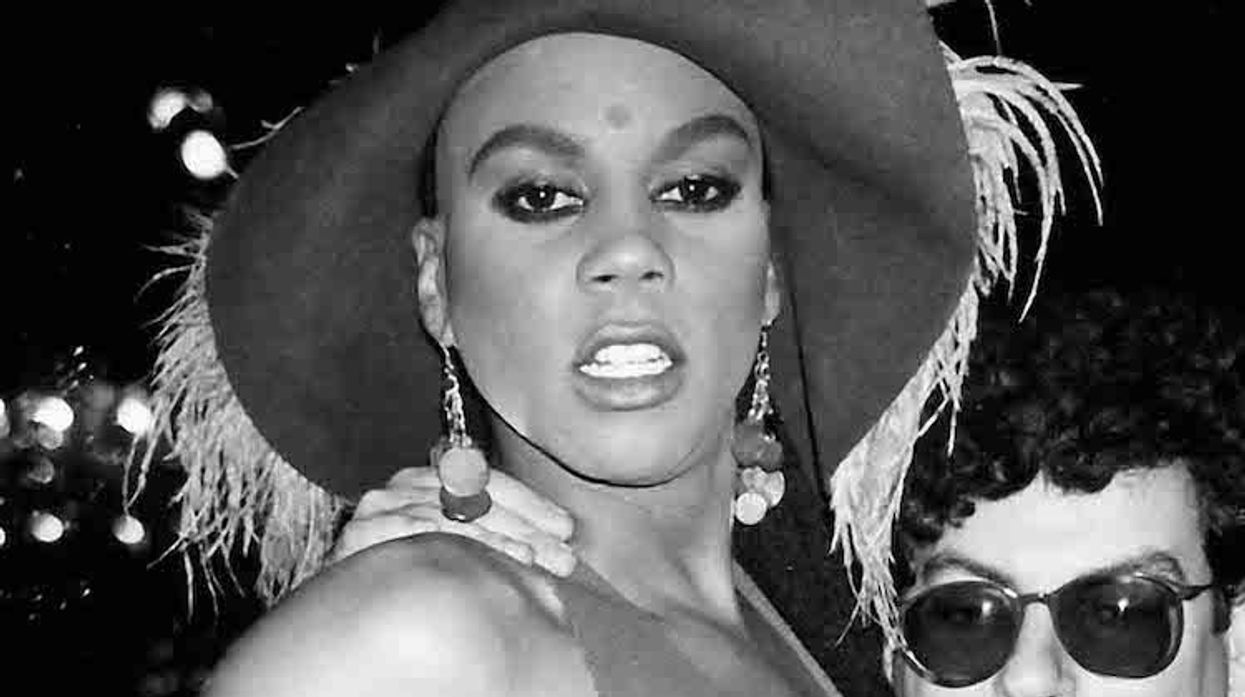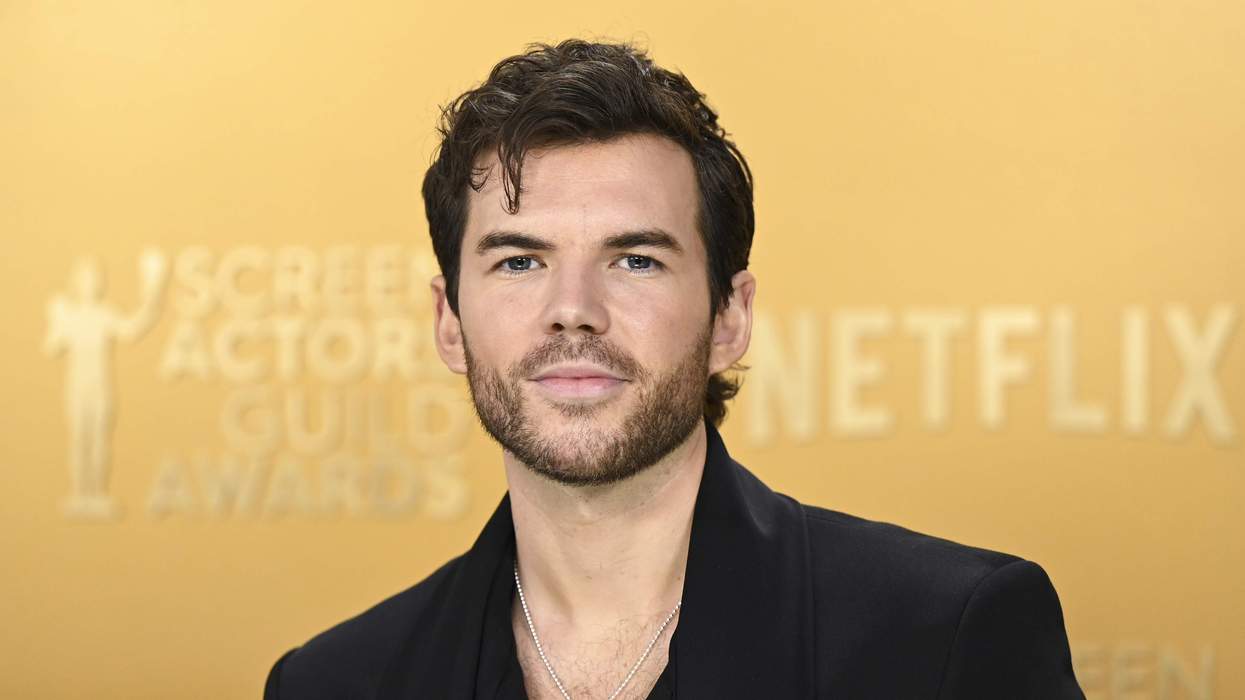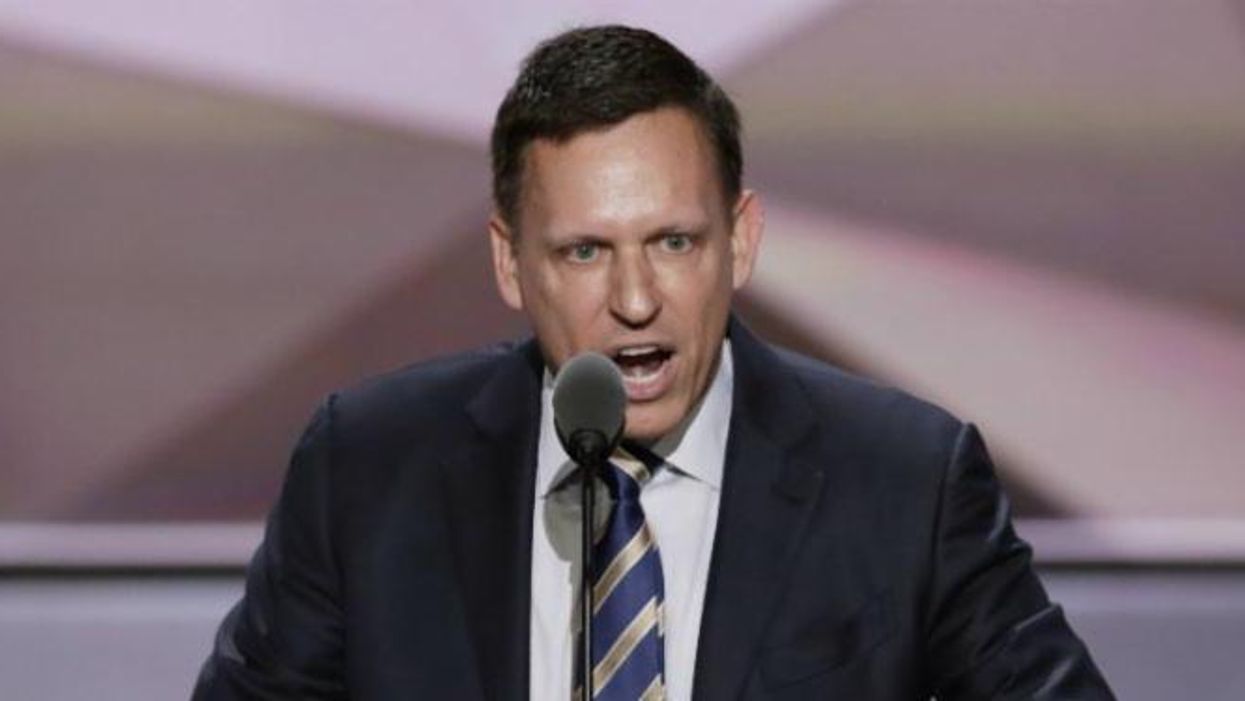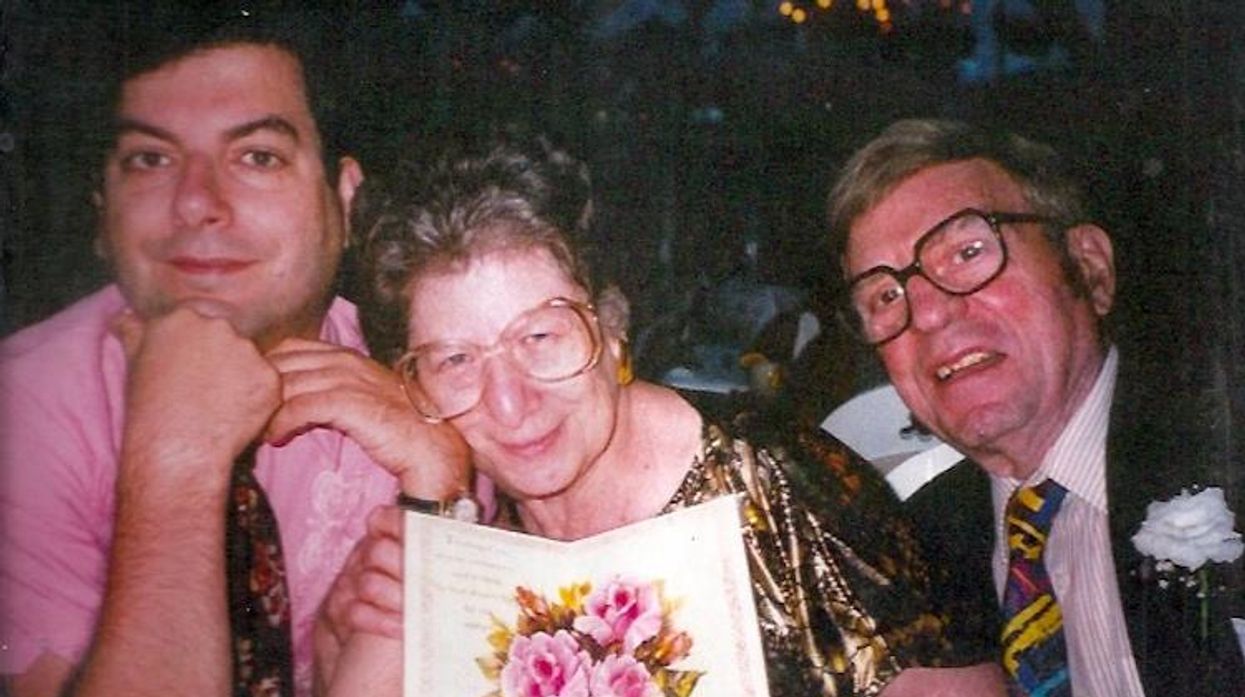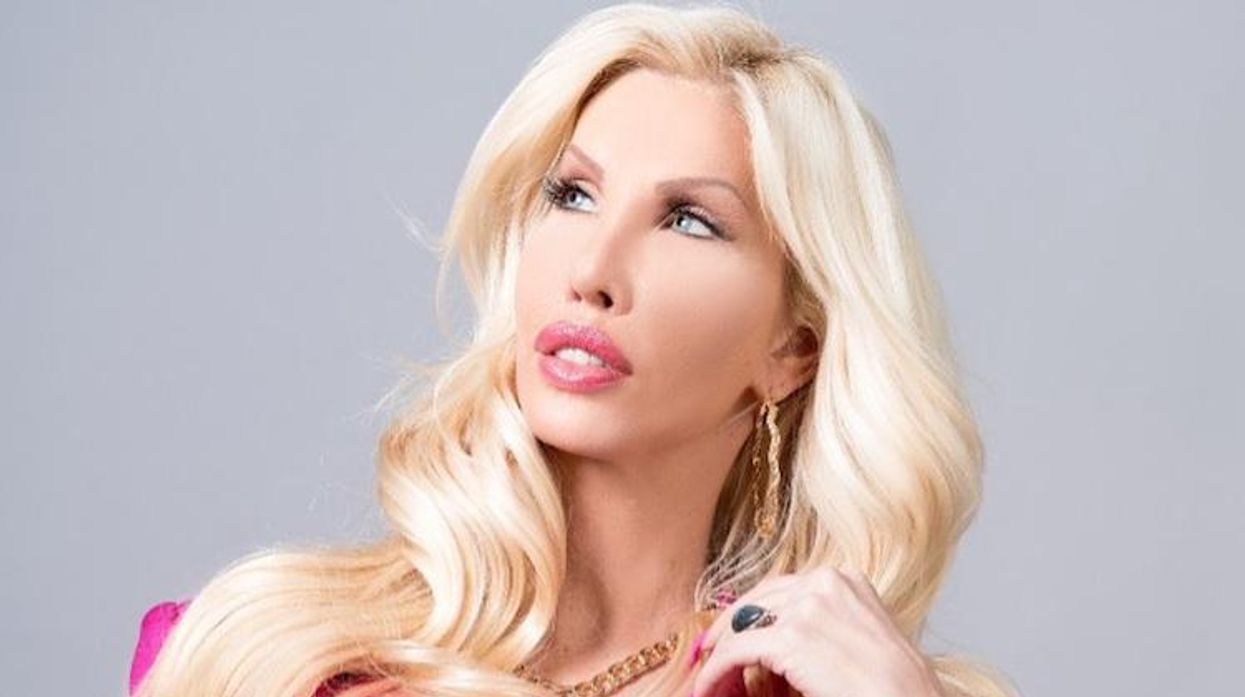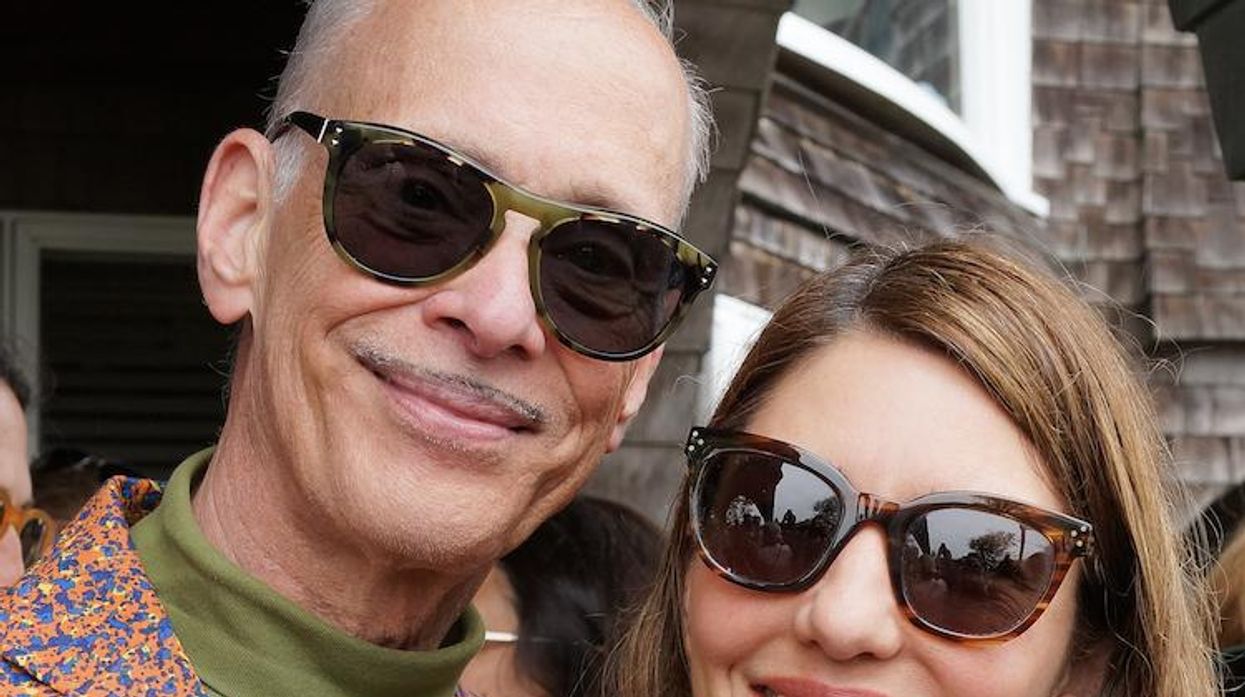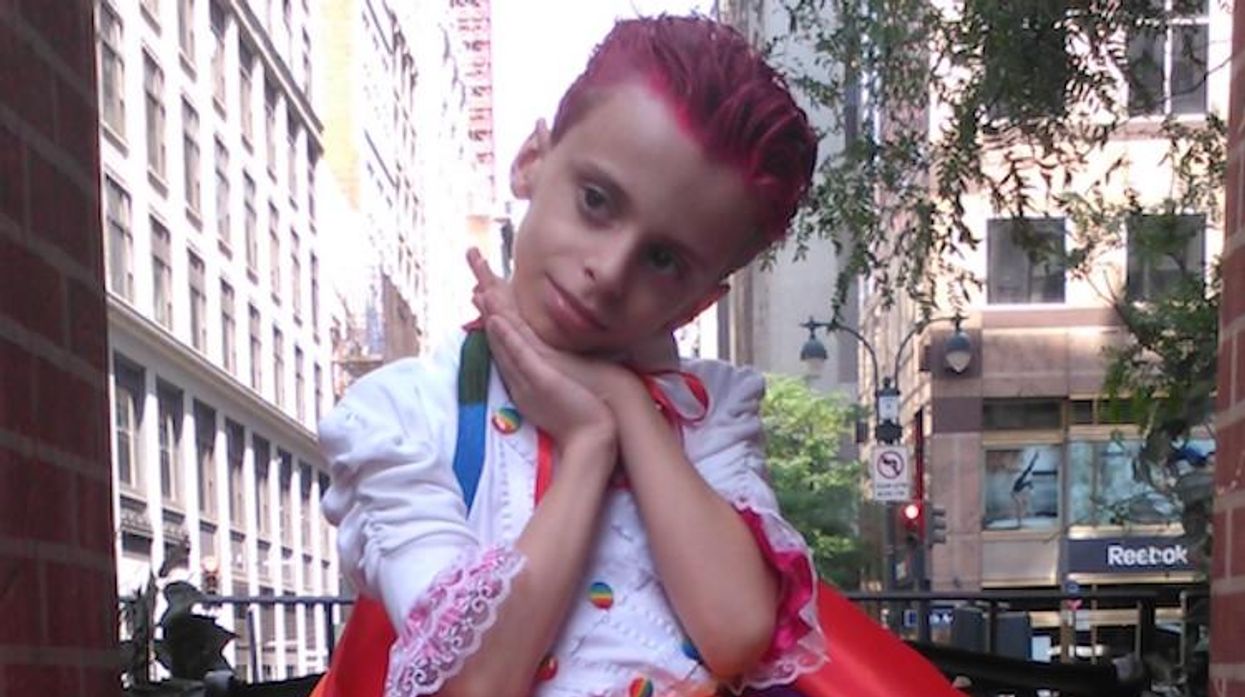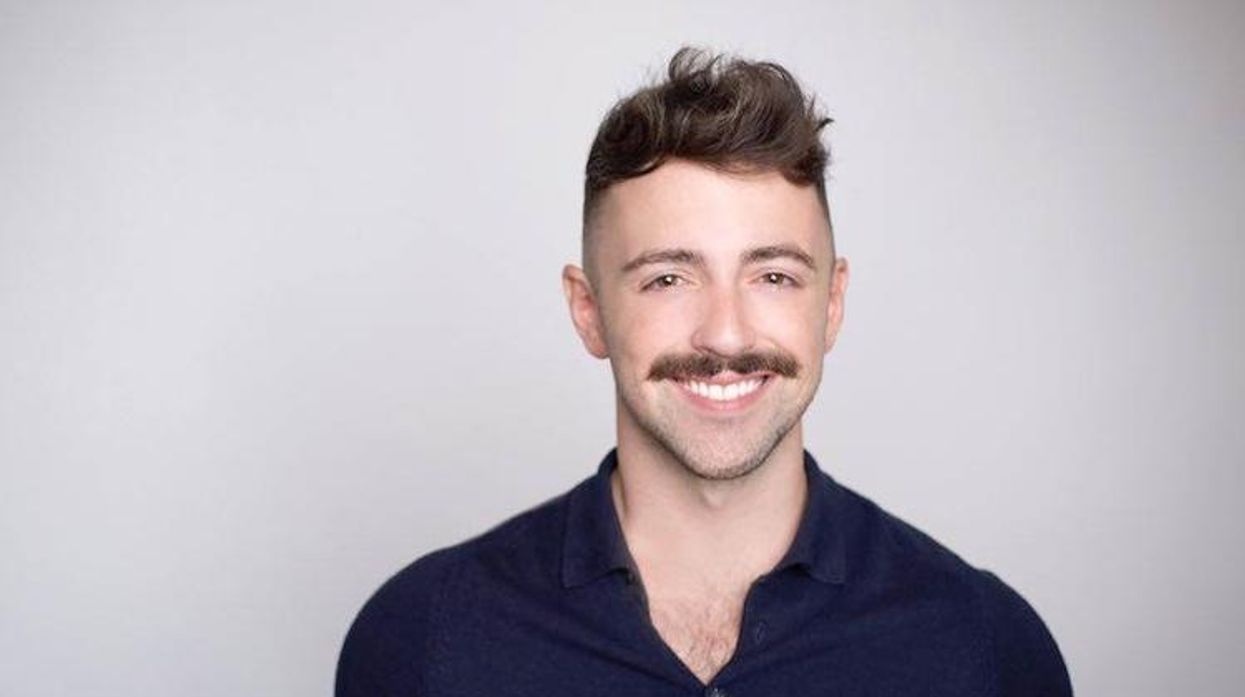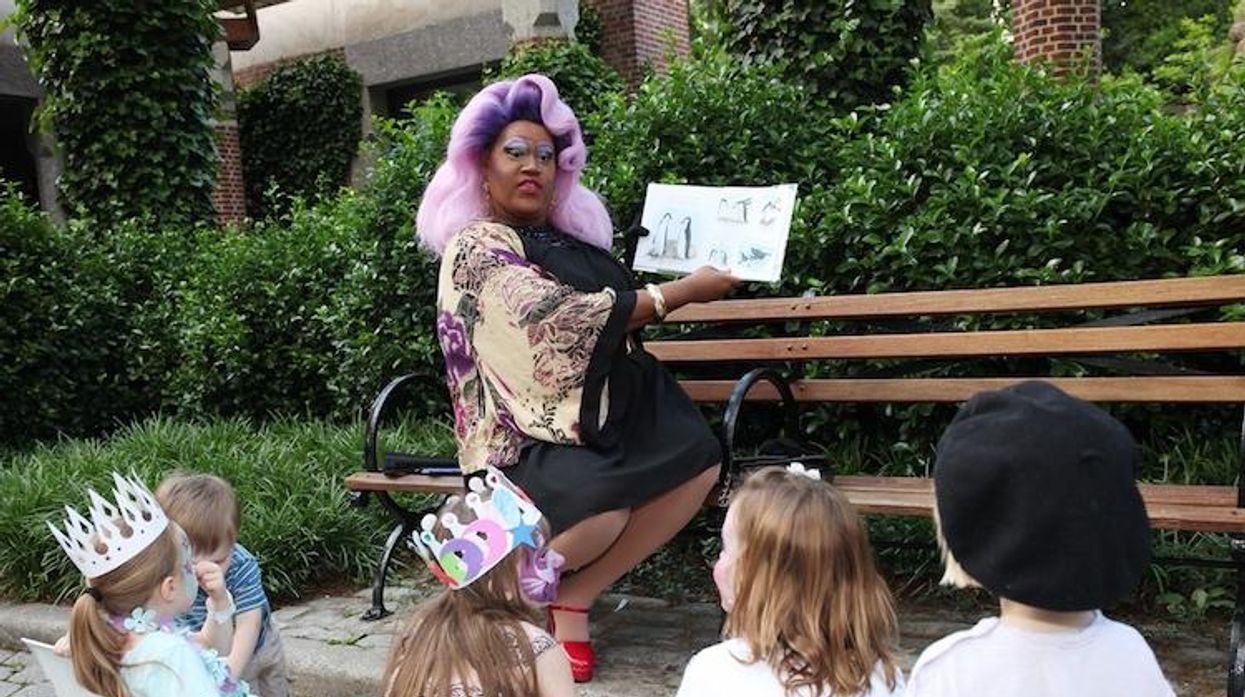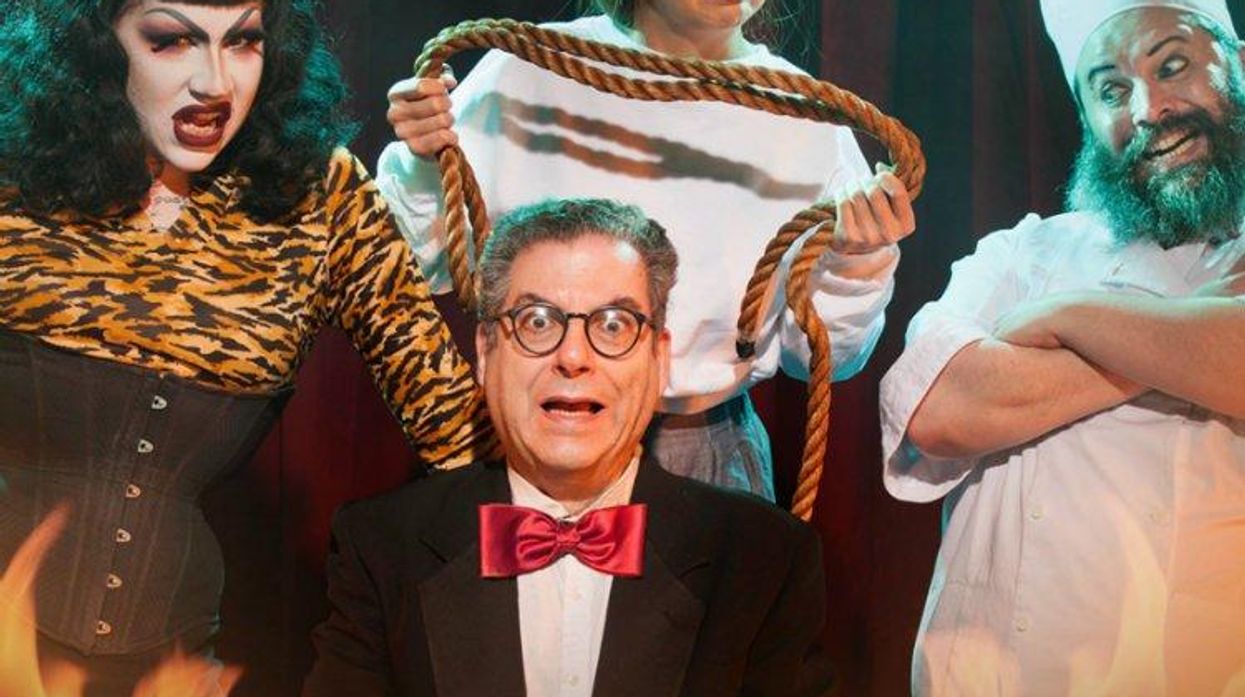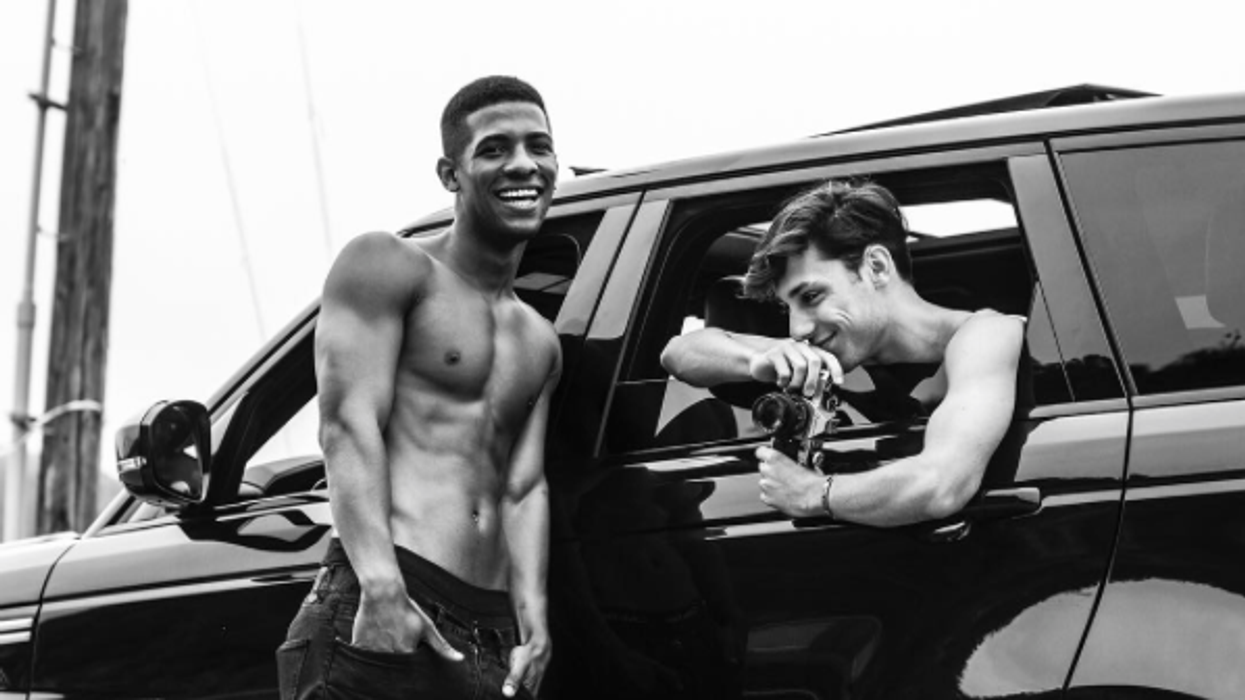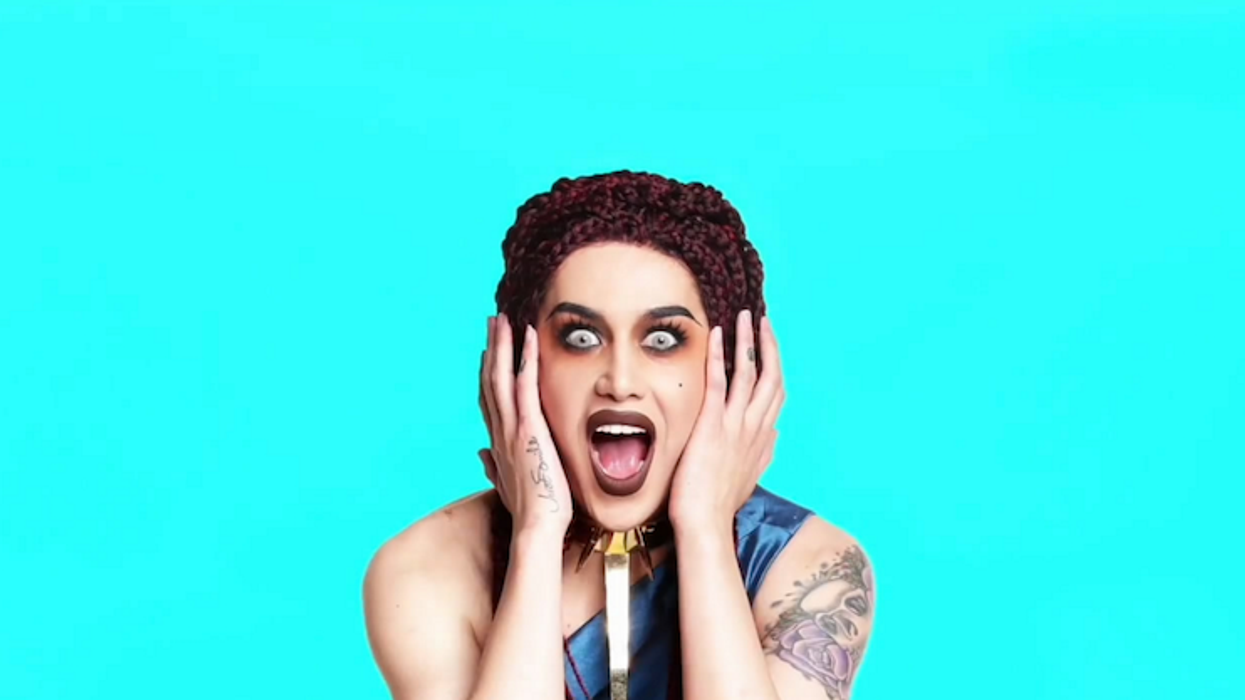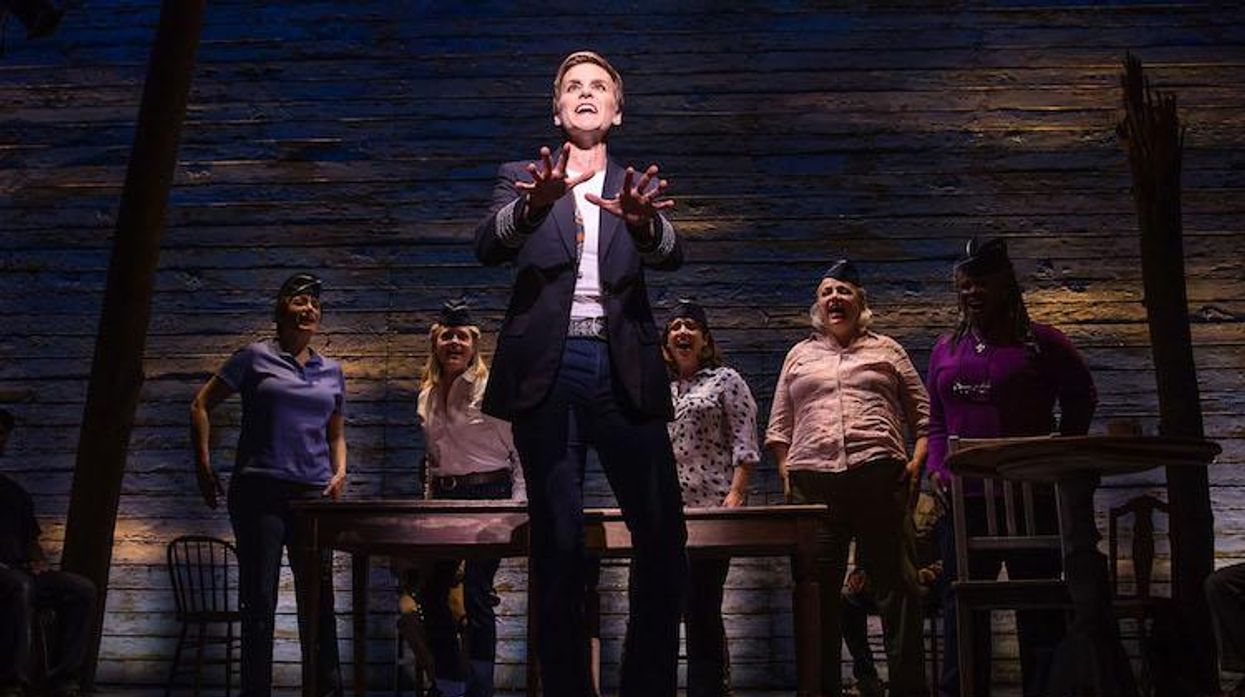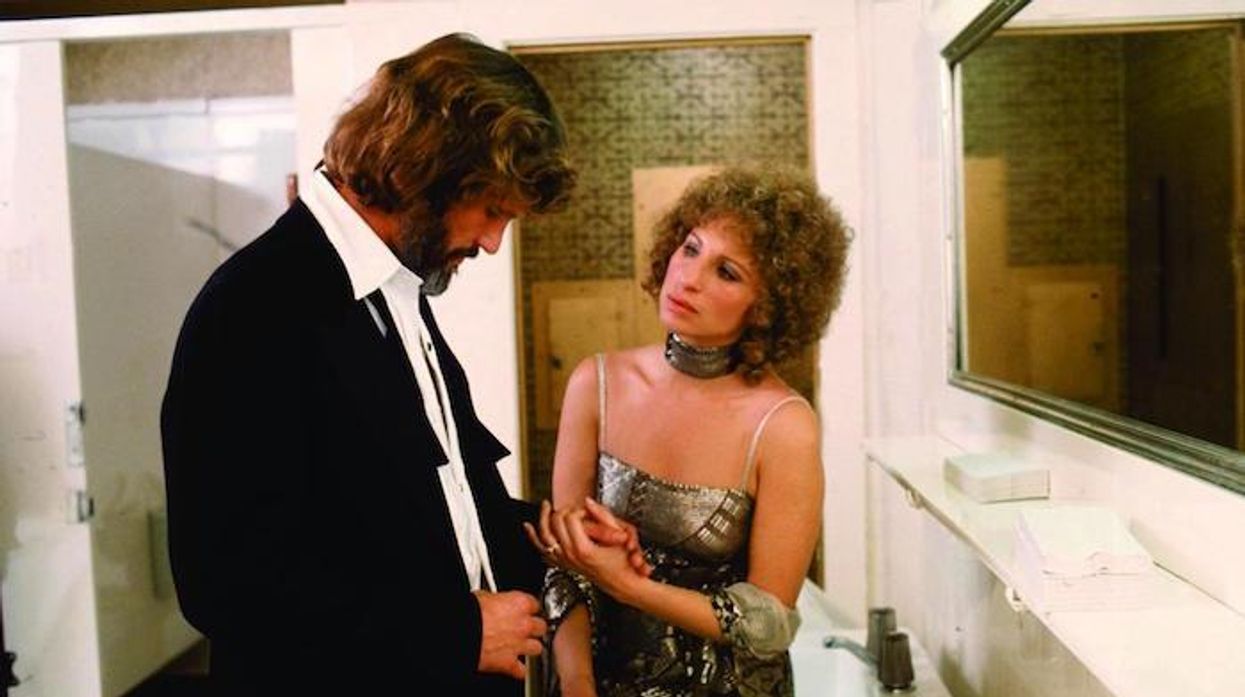Dominick Dunne (1925-2009) was the acclaimed, obsessive writer for Vanity Fair who specialized in thorough investigations into trials involving O.J. Simpson and the Menendez brothers (Lyle and Erik). He was also known for best selling books like The Two Mrs. Grenvilles (about a sensational murder trial) and for his frequent TV appearances, where he talked turkey about the people who most attention-grabbingly broke the law. And he also was known for a distinct propensity for guys--though not necessarily on the record.
Well, author Robert Hofler has conducted his own investigation and come up with the extensively researched book Money, Murder, And Dominick Dunne, out April 18. Hofler has previously looked into Henry Willson ("the man who invented Rock Hudson") and flamboyant producer Allan Carr, and this time he digs deep into the insecurities and triumphs of someone whose biggest crime was staying in the closet for so long. Order your copy of Hofler's book, here, and keep reading for our interview.
Hello, Bob. I learned from your book that Dunne's father called him a sissy and the result made him feel like an outsider.
There's a very weird interview he kept coming back to, and he would say, "I'm sure that Jose Menendez called Erik a f****t and a queer and all these horrible things, and it reminded me of my father, who used to call me a sissy." He said, "I so identified with Erik" and said, "We were both stutterers and had abusive fathers," but he'd never take that next step and say, "And we were both gay." He never dropped that other shoe, which was the big point of identification. That's where all this stuff was coming from and he'd never go there. He always used the word "sissy". Worse than that, relatives said Dominick should have been a little girl. It's such a sexist thing because little girls are called a tomboy and that's a kind of a compliment. There was some doubt as to whether Dominick was beaten by the father. The mother said it wasn't true. Dominick said he had welts on his side from the beatings. It was the '30s and it's possible the school wouldn't take the action they would today. But when the Menendez boys talked about the scars from the abuse, Dominick kept pointing out, "Why didn't anyone notice their scars?" But in his own report about his own abuse, he never said, "Why didn't anyone notice why MY thighs were swollen?" He did have empathy, particularly for Erik because he was attracted to him. I found a letter he wrote to Erik in prison. He said, "I liked the screenplays you wrote. You're a talented artist. I think you were misled by your brother."
Was he in love with Erik?
From the letter, it sounds that way. After the trial, in his house in Connecticut, Dominick kept this file of crime photographs, and one photo he always showed people was Erik Mendendez shirtless. He'd say, "He could have been a Calvin Klein model." This letter was brimming with admiration and sympathy for Erik. He'd say, "I don't know why--I'm just captivated by him." I think he knew why he was captivated by him.
But who was the real love of Dominick's life?
There was Frederic Combs, an actor who played Donald in Mart Crowley's The Boys in the Band [the seminal gay play which Dunne executive produced the movie version of]. A number of people talk about him being the love of Dominick's life. There was a character Mart Crowley based on Dominick--Alan, the one who's fighting with his wife and you're not sure of his sexuality.
The lead character, Michael, assumes Alan is gay and tries to out him with a telephone game. At one point, Alan's hostilities about being in a room of open gays comes out and he assaults the queeniest one, Emory. I always assumed Alan was dealing with closet issues.
Mart told the actor, Peter White, "You decide and don't tell me." The director, Robert Moore, said, "Play the ambivalence. I want half the audience to think he's gay and half to think he's straight." It was based on Dominick Dunne. There were a number of lines that were based on Dominick Dunne lines. Dominick even wrote, "I had a very blurred image of myself in those days. I'm the only one alive who produced two movies with characters based on me that I didn't realize." The other was Play it As it Lays, with Tony Perkins as a bisexual or gay movie producer who kills himself. He has a wife and invites hustlers to their beach house. At one point, Dominick confronted [author] Joan Didion and she said, "No, it's based on someone else," and Dominick said, "No, that person had no relation to that character."
Did he marry a woman, Ellen Griffin Dunne, a/k/a "Lenny," for convenience?
We don't know. The story he told is Ellen Griffin was an heiress from Arizona--megawealthy through cattle and road equipment. Dominick's mother was giving a party for a play in Hartford and one of the producers was a friend of Dominick's. When Ellen Griffin walked off the train, it was hard to tell who was attracted more--Dominick or his mother--because she immediately said, "That's the girl you should marry." Ellen's boyfriend at the time was gay. As Mart said, "the gayest straight man I've ever met."
I guess she had a type.
Here was this woman who had all this money. Dominick didn't have money. Dominick's mother-in-law loathed him. She saw him as a real golddigger. When Dominick was down and out, there was always a beautiful woman who took care of him.
Was she patient about his dalliances?
She did ask for a divorce. They had been married for a little over 10 years. They had five children, but two died. Mart told me he had a feeling that she found out something concrete about sex with other men. A detail from Joan DIdion is he was inviting hustlers into his home, although Scotty Bowers, who set up the hustlers, said Dominick would go to the hustlers' place.
And one of his hustlers was the famous porn star Cal Culver. Since Dominick grew up effeminate, would he be trans today?
No. When straight people are repulsed by gay sex, I don't think that's necessarily homophobic because I certainly know gay men who are repulsed by straight sex. It's so beyond their imagination to be able to do it. But then I also know gay men--back in my day when I was in my 20s, there were a lot of gays I was dating who were in their 30s, and more of them seemed to have been married or had relationships than my generation. More experimentation with the opposite sex. Those men would say, "Well, I enjoy it." I got that with Dominick. There were these women along the way that he had some form of sex with. Rock Hudson and Phyllis Gates did have sex. They think, "Maybe this will cure me. All I need to do is get married and I'll get over this." That may have been part of Dominick's approach.
But I'm not talking about his sexuality, I'm talking about his gender. Would he be trans?
I don't think so. Relatives said he should have been born a girl, and what upset Dominick tremendously was that his parents did not defend him. And I think that's why he became what he called an outsider in his own family. There were writers--Truman Capote, Gore Vidal, Gavin Lambert, and Christopher Isherwood--who didn't have to get married to have a writing career. But producing is all about being social--and executives too.
Is the rumor true that Dominick couldn't get aroused?
I never heard that. He used to go around saying, "I've been celibate for the last 20 years." I wonder if it's like Monica Lewinsky saying, "I didn't have sex" and Linda Tripp said, "But you gave him a blow job." Dominick was into oral sex. It's possible he didn't consider it sex.
Bill Clinton tried that argument too for a while. Anyway, in 1979, Dominick spoke at a gay group therapy weekend.
It was called the Advocate Experience--a support group and weekend retreat.
The same year, he wrote a letter to his kids saying he was gay, but he never mailed it. In the letter--as you report--he wrote that his secret was "a giant cancer eating its way through my body."
Yes. He did not say, "It's my homosexuality that's eating away at me," he said, "It's the secret of it" that was doing so.
Why did he change his mind about sending the letter?
I have no idea. I was working at Buzz magazine and a short profile came in about Dominick and it talked about him being gay, and an editor said, "He's not out." Someone said, "Why don't you call him?" and she said, "No way." I knew he was in the closet that way. It's like Roddy McDowall. If it was printed that Roddy was gay, he'd be very upset, but if you met him and you were gay, it was the topic of conversation. The surprise of the book for me was how in the closet Dominick was. Near the end of his life there were reporters like the Times of London. He told them he was in the closet, bisexual, and celibate. All three of those were false!
Well, two lies out of three ain't bad.
And he called himself "a closeted homosexual" in an interview for William J. Mann's Katharine Hepburn book. That was in 2009. There were these younger gay men--Dominick was kind of open with them, and this was near the end of his life. Roddy used to give little dinner parties where it was Dominick Dunne, Mart Crowley, and Gavin Lambert. I said to Mart, "Didn't he talk to you guys about being gay?" He said, "No." I think it's easy to tell people you just met that you're gay, but if you have to explain it to someone who knew you when you were quote straight and married with children, it's different because it brings up different questions like, "Well, what was that marriage about?" and "But you told me THIS." In '82 and '83, Dominick was living in NYC and going to all these AA meetings on Perry Street. That would have been a bunch of gay guys. I'm surprised. Why wasn't that a time to come out to his family and people like Mart, who had known him a long time? But it was a time of AIDS. Calvin Klein had a house in Fire Island and all of a sudden he's married to Kelly whatshername and he's giving interviews to Playboy. There was an article on Steve Rubell and the Palladium nightclub in New York magazine and Bianca Jagger says, "I like the heterosexual ambience in this club as opposed to the sleazy Studio 54." That was the tone creeping in. Some people came out, but generally they were people dying of AIDS or affected by that.
Many were propelled out of the closet, while others cowered in fear. Dominick was not an activist.
He was never an activist. He became a big star. It's an amazing reinvention of a person that all of a sudden you're a top writer at Vanity Fair. And his novels. There's nothing Dominick wanted more than fame because it made him feel like he was an insider. He needed that constant affirmation of people coming up to him and saying, "Aren't you Dominick Dunne?"
I know the feeling.
There was a lot that I identified with him. Where I was disappointed with him is the gay movement has moved forward because of people coming out. You look at parts of the country with the most bigotry because they don't know people who are gay. But of course they do. That's where the bigotry comes from. You have to come out and if not, you're part of the problem. He did a documentary in 2006 and even then, he said, "Lenny is the love of my life." But his last novel, Too Much Money, has a character named Gus Bailey, who's obviously Dominick Dunne, and he comes out. He says, "I couldn't have because of how it would affect my two sons, even though they're grown and would know anyway." In all his donated papers, there was all this stuff about his being gay. If he didn't want to come out, he would have edited his papers.
Well, when I wrote up Liza Minnelli's wedding to David Gest, I jokingly wrote that it was certified as a crime scene because Dominick Dunne was spotted there. And he told me he enjoyed that remark! So he was pretty cool on some levels. Thanks, Bob.
CLUB CUMMING IS WORTH GOING TO
Alan Cumming
The openly everything award winner Alan Cumming is teaming up again with the wizard of wonderful Daniel Nardicio for a whole new East Village bar set in an old East Village bar. Eastern Bloc, the long running East 6th Street rec room, is going to get a complete overhaul and come back as Club Cumming, so pop an Altoid and gird your loins, folks. The actor/singer/author and the peppy promoter have bought into the place, where Darren Dreyden and Ben Maisani will stay on as management, and the result sounds like it will be a whole new Cum bucket of fun.
Currently, Nardicio is mounting experimental happenings in the space, and in about four moths, after a big farewell blowout, it will shut down, be mopped up, and refurbished, and will rise again in September as a mixed metaphor for the new era. "Alan is highbrow/lowbrow, and so am I," said Nardicio (who gave Bianca Del Rio and Lady Gaga big career boosts, works with Diamanda Galas and Dina Martina, and does hoppin' hormonal bashes in Fire Island all summer). "We want to make things more chic, like a Kit Kat Club-style dressing room and a bathroom redone by a major cosmetics firm. And we'll bring back Reading For Filth, the reading series Brian Butterick did, as well as having all sorts of live performances, like Brian Newman, who's Lady Gaga's trumpet player/jazz band leader, and hopefully Amanda Lepore's CD release party."
And I'm sure there will be all manner of boys running around in underwear too. I'm Cumming already.
COWARDLY LYIN'
Kevin Kline
Gay dandy Noel Coward wrote Present Laughter in 1939 as a vehicle for himself, but it also happens to provide colorful employment for a lot of other people. While actor Garry Essendine prepares to go off on an African tour, flitting around him are a younger, infatuated actress, his still smitten ex-wife, an obsessive aspiring playwright, his salty secretary, his manager, and his producer's sultry spouse, all vying for his attention via elaborate machinations. This is the kind of play where when one character is through talking and exits, another one happens to traipse in and start yapping. It's a light hearted series of confrontations, with not much heft, but blessed with Coward's customarily tart spoofing of human frailty, and again, the parts are juicy to bite into, especially as the plottings mount to a delirious level.
Kevin Kline doesn't disappoint as Garry, seeming to channel a Douglas Fairbanks-style suavity, while summoning utter narcissism, hilarious physical gesturing, and some huffy righteousness for his climactic takedown of everyone else's lapses in morality. Kristine Nielsen brings her usual quirky humor to the part of Monica, the secretary who seems to be secretly in love with Garry; Kate Burton is all knowing and fun as Liz, the ex wife; Reg Rogers is wonderfully drunk and bitter as the conflicted manager, Morris; Cobie Smulders is smooth as Garry's producer's promiscuous wife; and as Miss Erikson, the dour Scandinavian maid who chain smokes, Ellen Harvey brings to mind an even more straightfaced answer to Jackie Hoffman's Mamacita in Feud. Set designer David Zinn's version of Essendine's London studio is spectacular, and the goings on, directed by Moritz von Stuelpnagel, are slight but zippy. Check it out for a taste of old-style wit and silliness.
MARRY ME A LITTLE
Daniel's Husband
Gay romantic commitment and the value placed on it by its participants is the focal point of two major plays that just happened to open. In Daniel's Husband, by Michael McKeever, seemingly perfect partners Daniel (the always excellent Ryan Span) and Mitchell (Matthew Montelongo) have been together for seven years, but never married because Mitchell resents "insipid queens desperate to assimilate" and rejects the normalcy and conformity he feels is inherent in the marital institution. Besides, he says he's done the legal paperwork to have whatever benefits they need, and there's nothing more to be gained by going through the motions of walking down the aisle. Mitchell's pompous assertion of that view at a get-together is the only sour note, as the couple--along with a flawed but sympathetic friend (a poignant Lou Liberatore) and his younger health worker boyfriend (Leland Wheeler) banter about pop culture and relationship dynamics. The tone is extremely funny and light, then takes a wild turn toward the dramatic when something happens to one of the main characters requiring the twink to use his medical skills. In swoops the afflicted party's patronizing and selfish mother (Anna Holbrook), who engages her son's lover in a dirty battle for control, one which makes it clear that all the marriage-is-for-sissies talk was extraordinarily off base. In going from breezy cocktail chatter to devastating dramatics, McKeever performs an impressive tightwire act, and his cast is deft with every turn. And I loved it when Holbrook came out of the stage door after the show insisting, "I'm really nice!"
Intergenerational relationships and commitment also come up in Martin Sherman's Gently Down the Stream, in which a 28-year-old lawyer is ravenously anxious to learn about the icons and happenings of the past through an older man he met through an online hookup and has become surprisingly entangled with. In fact, the younger gent admits that he finds the past downright sexy. In the play at the Public Theater, Gabriel Ebert is Rufus, who keeps pummeling his daddy type, Beau (Harvey Fierstein), with questions, even filming him in this pursuit, which becomes a convenient way for Beau to reveal reams of exposition about his past travails (as the play spans 2001 to 2014). Beau is a cocktail pianist with a thick Creole accent, living in London, and he's amazed that this younger guy wants a relationship with him, Beau insisting that these things always end badly. But as he talks about his heartbreaks, you start to feel that Beau MAKES things end badly because he's been so soured on life's possibilities that optimism has been sucked out of him (though he still manages to be witty and sharp while clinging to some hope, despite it all). Soon it becomes clear that Beau represents the old gay way of life--one rooted in oppression and shaming--whereas Rufus has come of age in a time with far more acceptance and possibility. How the gay past blesses the gay present is the crux of the play, which happens when Rufus meets someone more age appropriate--something Beau had always advised him to do, though it turns out the poor old thing didn't really mean it.
The play by Sherman (who wrote Bent and the script for The Boy From Oz) seems intent on checking off every major experience of the gay movement, with references to James Baldwin, the New Orleans gay club fire, Larry Kramer, AIDS, crystal meth, gender reassignment, marriage, and parenting. I was amazed that Beau didn't find himself at Stonewall too. It becomes too much, but the comic parts are effective, and the show is buoyed by Fierstein's star presence and expert timing. Sean Mathias directs, and Derek McLane's set--featuring shelves upon shelves of books--becomes an eye popping metaphor for Beau's breadth of experience.
THE LAST TIME I SAW PARIS
Amelie
Your preciousness threshold may well be tested with Amelie, based on the 2001 film about the French dreamer who fantasizes about being the next Lady Diana, but who's too awkward to take the step into her own personal happiness. The musical adapts the film into a quirky operetta--with lots of emo-drenched pop/rock/Broadway sounds by Daniel Messe and Nathan Tysen--coming off like Waitress meets Amour (the wispy 2002 Michel Legrand show, with local Parisian color almost eclipsing the lead romance). Even as a girl, Amelie is the odd man out, overly befriending her pet fish and picturing nuns with alligator heads. Her mom is praying for a son, but dies, leaving dad to memorialize his late wife with a lawn gnome. (Ma hated those objects, but as a result, every time he looks at the gnome, he'll think of her. Are you getting the level of whimsy here? Oh, by the way, dad is a physician who only touches his daughter when he performs checkups on her).
There are other offbeat characters along the way--an old artist with an illness, a cafe owner who limps as the result of a circus accident, and of course, the doleful looking love interest for Amelie. (She dresses like a nun--but without an alligator head--to track him down in a peepshow. Long story). Pam MacKinnon's direction keeps things clever and charming, David Zinn provides another ambient set, and in the lead role, Phillipa Soo doesn't overplay or underline the cuteness. The result--with a book by Craig Lucas--is an oddity that is best when it goes for flat-out satire, like when a rock star--modeled on Lady Di's friend Elton John--emerges to sing the tribute song in the lead character's fertile mind.


